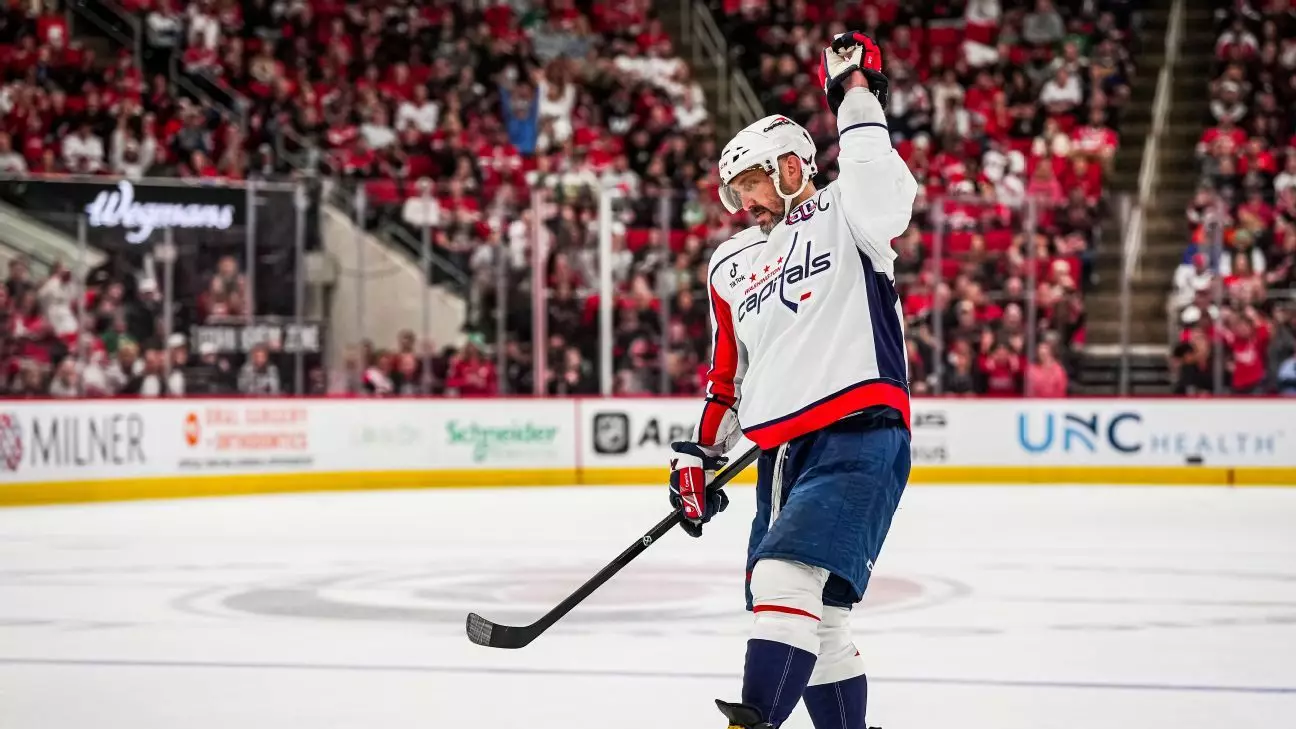In the world of hockey, few stories shine as brightly as the ongoing saga of Alex Ovechkin. As he moves within a mere three goals of breaking Wayne Gretzky’s long-standing NHL record of 894 career goals, Ovechkin embodies both a breath of relentless ambition and a testament to longevity in professional sports. In a recent match against the Carolina Hurricanes, the Washington Capitals star showcased his remarkable skill by netting his 892nd goal, yet the Capitals faced a disappointing 5-1 defeat. One can’t help but ask: is this pursuit of records during a losing campaign a mark of greatness or an obsession overtaken by the demands of statistics?
Back-to-Back Brilliance Amidst Team Failures
Despite the loss, Ovechkin’s remarkable ability to score back-to-back goals—his 891st coming the night before against the Boston Bruins—reveals a consistency that commands admiration. His performance amidst adversity is a characteristic that truly defines the greats. The fact that he achieved this milestone in just his 12th game against goaltender Frederik Andersen speaks volumes about his tactical proficiency and drive. With 39 goals this season alone, Ovechkin finds himself tied for the second-most goals in a single season for players aged 39 and older, which only elevates the narrative surrounding his candidacy as one of the all-time greats.
The Age Factor: Longevity vs. Legacy
At 39, Ovechkin’s accomplishments bring into sharp focus the duality of aging in professional sports. He is not just playing; he is rewriting the narrative of what it means to compete at an advanced age. His resilience, especially considering he missed 16 games due to injury, is both inspiring and awe-inducing. It raises an essential question: should athletes be defined solely by their statistics, or does their ability to overcome adversities lend depth to their legacies? Ovechkin’s pursuit is both a show of skill and a symbolic fight against inevitable decline.
The Pressure of Expectations
As he edges closer to what many might regard as the illustrious mark of 894 goals, the pressure mounts not solely on Ovechkin, but also the franchise, the fans, and the league. Will his pursuit of the record overshadow the collective objectives of the Capitals? This year, with only seven games left in the regular season, the nearly palpable tension of upcoming matches amplifies the question of whether Ovechkin’s goals will serve to uplift the team or highlight its shortcomings. Is the pursuit of personal glory a distraction from team cohesion and ultimate success in the postseason?
The ambiguity surrounding Ovechkin’s astonishing chase is profound. Can individual accolades coalesce harmoniously with team goals, or do they, by nature, conflict? As fans and analysts alike look on, the hockey community stands on the precipice of witnessing history, asking ourselves whether we truly appreciate the beauty of athletic excellence when it comes wrapped in the complexities of team dynamics. One cannot dispute the cathartic power of profound achievement, yet one must remain critical of its implications in the broader scope of sportsmanship.


Leave a Reply